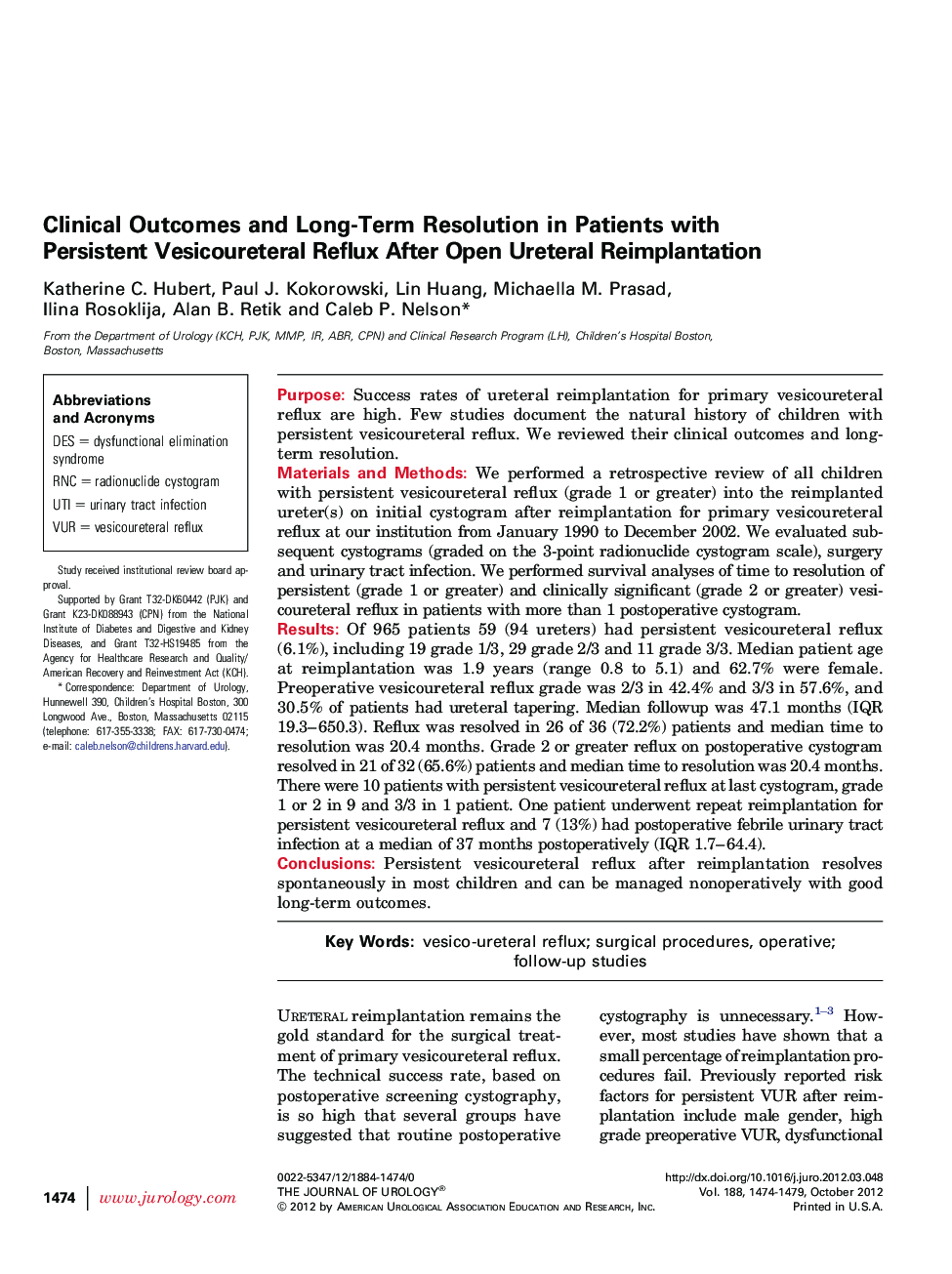| Article ID | Journal | Published Year | Pages | File Type |
|---|---|---|---|---|
| 3867432 | The Journal of Urology | 2012 | 6 Pages |
PurposeSuccess rates of ureteral reimplantation for primary vesicoureteral reflux are high. Few studies document the natural history of children with persistent vesicoureteral reflux. We reviewed their clinical outcomes and long-term resolution.Materials and MethodsWe performed a retrospective review of all children with persistent vesicoureteral reflux (grade 1 or greater) into the reimplanted ureter(s) on initial cystogram after reimplantation for primary vesicoureteral reflux at our institution from January 1990 to December 2002. We evaluated subsequent cystograms (graded on the 3-point radionuclide cystogram scale), surgery and urinary tract infection. We performed survival analyses of time to resolution of persistent (grade 1 or greater) and clinically significant (grade 2 or greater) vesicoureteral reflux in patients with more than 1 postoperative cystogram.ResultsOf 965 patients 59 (94 ureters) had persistent vesicoureteral reflux (6.1%), including 19 grade 1/3, 29 grade 2/3 and 11 grade 3/3. Median patient age at reimplantation was 1.9 years (range 0.8 to 5.1) and 62.7% were female. Preoperative vesicoureteral reflux grade was 2/3 in 42.4% and 3/3 in 57.6%, and 30.5% of patients had ureteral tapering. Median followup was 47.1 months (IQR 19.3–650.3). Reflux was resolved in 26 of 36 (72.2%) patients and median time to resolution was 20.4 months. Grade 2 or greater reflux on postoperative cystogram resolved in 21 of 32 (65.6%) patients and median time to resolution was 20.4 months. There were 10 patients with persistent vesicoureteral reflux at last cystogram, grade 1 or 2 in 9 and 3/3 in 1 patient. One patient underwent repeat reimplantation for persistent vesicoureteral reflux and 7 (13%) had postoperative febrile urinary tract infection at a median of 37 months postoperatively (IQR 1.7–64.4).ConclusionsPersistent vesicoureteral reflux after reimplantation resolves spontaneously in most children and can be managed nonoperatively with good long-term outcomes.
